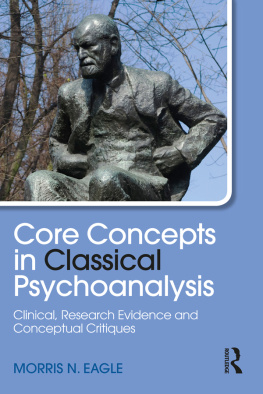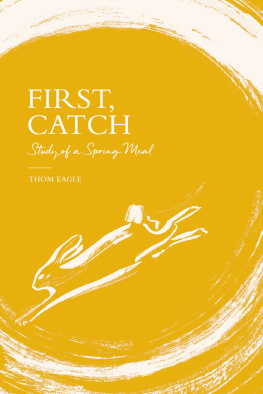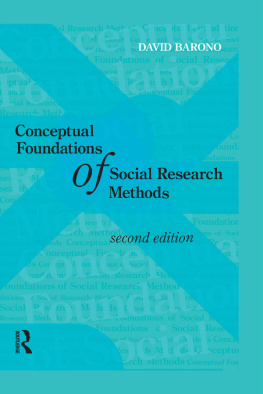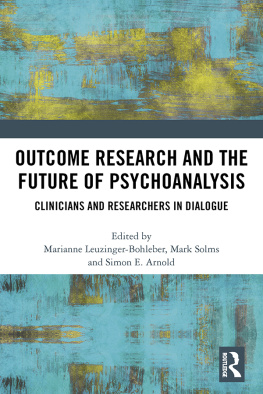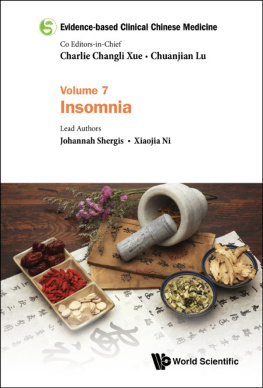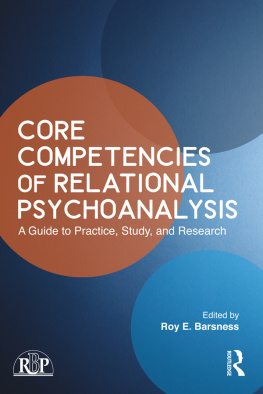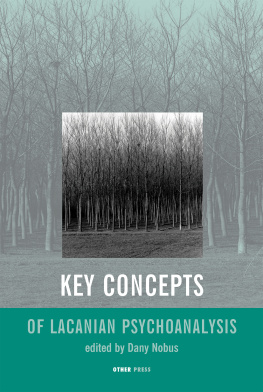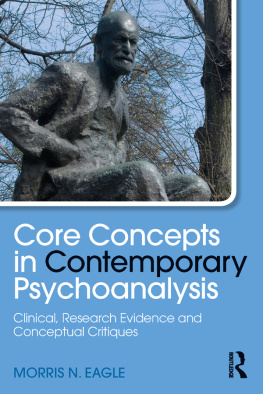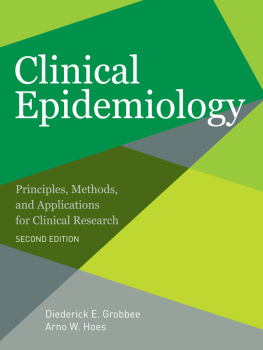Eagle - Core concepts in classical psychoanalysis : clinical, research evidence and conceptual critiques
Here you can read online Eagle - Core concepts in classical psychoanalysis : clinical, research evidence and conceptual critiques full text of the book (entire story) in english for free. Download pdf and epub, get meaning, cover and reviews about this ebook. year: 2018, publisher: Routledge, genre: Politics. Description of the work, (preface) as well as reviews are available. Best literature library LitArk.com created for fans of good reading and offers a wide selection of genres:
Romance novel
Science fiction
Adventure
Detective
Science
History
Home and family
Prose
Art
Politics
Computer
Non-fiction
Religion
Business
Children
Humor
Choose a favorite category and find really read worthwhile books. Enjoy immersion in the world of imagination, feel the emotions of the characters or learn something new for yourself, make an fascinating discovery.
Core concepts in classical psychoanalysis : clinical, research evidence and conceptual critiques: summary, description and annotation
We offer to read an annotation, description, summary or preface (depends on what the author of the book "Core concepts in classical psychoanalysis : clinical, research evidence and conceptual critiques" wrote himself). If you haven't found the necessary information about the book — write in the comments, we will try to find it.
Eagle: author's other books
Who wrote Core concepts in classical psychoanalysis : clinical, research evidence and conceptual critiques? Find out the surname, the name of the author of the book and a list of all author's works by series.
Core concepts in classical psychoanalysis : clinical, research evidence and conceptual critiques — read online for free the complete book (whole text) full work
Below is the text of the book, divided by pages. System saving the place of the last page read, allows you to conveniently read the book "Core concepts in classical psychoanalysis : clinical, research evidence and conceptual critiques" online for free, without having to search again every time where you left off. Put a bookmark, and you can go to the page where you finished reading at any time.
Font size:
Interval:
Bookmark:

Morris Eagle strikes us once again. Relentlessly, and brilliantly, he examines across these two books every aspect of the major psychoanalytic concepts. And differently from most authors, he does not remain at the theoretical level, but always relates theory to clinical evidence and empirical research, in the best academic tradition. These works will be a classic, an unavoidable reference for our field, and will be used by training programs worldwide.
Paolo Migone, MD, editor of the journal Psicoterapia e Scienze Umane (www.psicoterapiaescienzeumane.it)
These two works, both Classical and Contemporary, should be in the library of every serious student of psychoanalysis and the psychoanalytic therapies. Applying his wide-ranging critical intelligence to decades of empirical research and cross-disciplinary scholarship, Morris Eagle evaluates seminal psychoanalytic ideas with verve and incisiveness. His comprehensive integration is easy to read, persuasive, and rare in the professional literature fascinating.
Nancy McWilliams, PhD, ABPP, Visiting Full Professor, Rutgers Graduate School of Applied & Professional Psychology
In order to prosper it is important for any complex theory in psychology to undergo evaluation of its core constructs to ascertain which aspects have received support, clarify areas in need of modification and also, if we are to be honest and fair, identify those elements that need to be jettisoned. In both Classical and Contemporary, Eagle undertakes such an examination of psychoanalytic theory in a thoughtful, clear and incisive review of research evidence, clinical material and conceptual issues. Be forewarned, this is no rubber-stamp of or love letter to psychoanalytic theory. To the contrary, it is a balanced and often critical review of psychoanalytic constructs discussed in an experience-near descriptive manner, eschewing meta-psychological jargon, delivered with a good deal of wit and skillfulness that is typical of Eagles previous work. Agree or disagree with his conclusions, any serious psychoanalytic scholar or student will benefit a great deal from the discussion contained in these volumes and be much better situated to help psychoanalytic theory evolve and thrive in the contemporary mental health landscape.
Mark J. Hilsenroth, PhD, Professor, Derner School of Psychology, Adelphi University
Morris Eagles thoughtful, probing, and insightful writings have long stood out as examples of the finest thinking the psychoanalytic tradition has to offer. Bringing a remarkable clarity and rigor of thought to reexamining some of our most fundamental concepts and assumptions, Eagle offers fresh insights that both affirm and challenge analysts of all stripes. These two books, Classical and Contemporary, the capstone of a long and brilliant career, are virtually a blueprint for how psychoanalysis can survive in the coming decades.
Paul L. Wachtel, PhD, CUNY Distinguished Professor, Doctoral Program in Clinical Psychology, City College of CUNY
The clarity and richness, the thoughtful analysis and overall assessment of where psychoanalysis stands in these two books by Morris Eagle makes them indispensable for all psychoanalysts and psychoanalytic therapists who are concerned for the future of our field.
Otto F. Kernberg, Professor of Psychiatry, Weill Medical College of Cornell University; Director of the Personality Disorders Institute of the New York Presbyterian Hospital (Westchester Division), Training Analyst at Columbia University Center for Psychoanalytic Training and Research of New York and Past-President of the International Psychoanalytic Association (IPA)
Eagles integrative work just goes on improving! This is the best, most compre -hensive and visionary work so far. He is the best commentator on theoretical and clinical psychoanalysis bar none. A highly recommended book.
Peter Fonagy, Professor of Contemporary Psychoanalysis and Developmental Science, University College London
In Core Concepts in Classical Psychoanalysis, alongside its companion piece Core Con -cepts in Contemporary Psychoanalysis, Morris N. Eagle asks: of the core concepts and formulations of psychoanalytic theory, which ones should be retained, which should be modified and in what ways, and which should be discarded?
The key concepts and issues explored in this book include:
- Unconscious processes and research on them what evidence is there for a dynamic unconscious?
- Is there a universal Oedipus complex?
- The importance of inner conflict.
- The concept of defense.
Unlike other previous discussions of these concepts, this book systematically evaluates them in the light of conceptual critique as well as recent research-based evidence and empirical data.
Written with Eagles piercing clarity of voice, Core Concepts in Classical Psycho -analysis challenges previously unquestioned psychoanalytic assumptions and will appeal to psychoanalysts, psychoanalytic psychotherapists, and anyone interested in integrating core psychoanalytic concepts, research, and theory with other disciplines including psychiatry, psychology, and social work.
Morris N. Eagle, PhD, is Distinguished Educator-in-Residence at California Lutheran University, Professor Emeritus at the Derner Institute for Advanced Psychological Studies, Adelphi University, and is in part-time private practice. He is the author of From Classical to Contemporary Psychoanalysis: A Critique and Integration and many journal articles. He is former President of the Division of Psychoanalysis of the American Psychological Association and recipient of the Sigourney Award, 2009.
DAVID WOLITZKY
Series Editor
The basic mission of Psychological Issues is to contribute to the further development of psycho analysis as a science, as a respected scholarly enterprise, as a theory of human behavior, and as a therapeutic method.
Over the past 50 years, the series has focused on fundamental aspects and foundations of psycho analytic theory and clinical practice, as well as on work in related disciplines relevant to psychoanalysis. Psychological Issues does not aim to represent or promote a particular point of view. The contributions cover broad and integrative topics of vital interest to all psychoanalysts as well as to colleagues in related disciplines. They cut across particular schools of thought and tackle key issues, such as the philosophical underpinnings of psychoanalysis, psychoanalytic theories of motivation, conceptions of therapeutic action, the nature of unconscious mental functioning, psychoanalysis and social issues, and reports of original empirical research relevant to psychoanalysis. The authors often take a critical stance toward theories and offer a careful theoretical analysis and conceptual clarification of the complexities of theories and their clinical implications, drawing upon relevant empirical findings from psychoanalytic research as well as from research in related fields.
The Editorial Board continues to invite contributions from social/behavioral sciences such as anthropology and sociology, from biological sciences such as physiology and the various brain sciences, and from scholarly humanistic disciplines such as philosophy, law, and ethics. Volumes 164 in this series were published by International Universities Press. Volumes 6569 were published by Jason Aronson.
Font size:
Interval:
Bookmark:
Similar books «Core concepts in classical psychoanalysis : clinical, research evidence and conceptual critiques»
Look at similar books to Core concepts in classical psychoanalysis : clinical, research evidence and conceptual critiques. We have selected literature similar in name and meaning in the hope of providing readers with more options to find new, interesting, not yet read works.
Discussion, reviews of the book Core concepts in classical psychoanalysis : clinical, research evidence and conceptual critiques and just readers' own opinions. Leave your comments, write what you think about the work, its meaning or the main characters. Specify what exactly you liked and what you didn't like, and why you think so.

